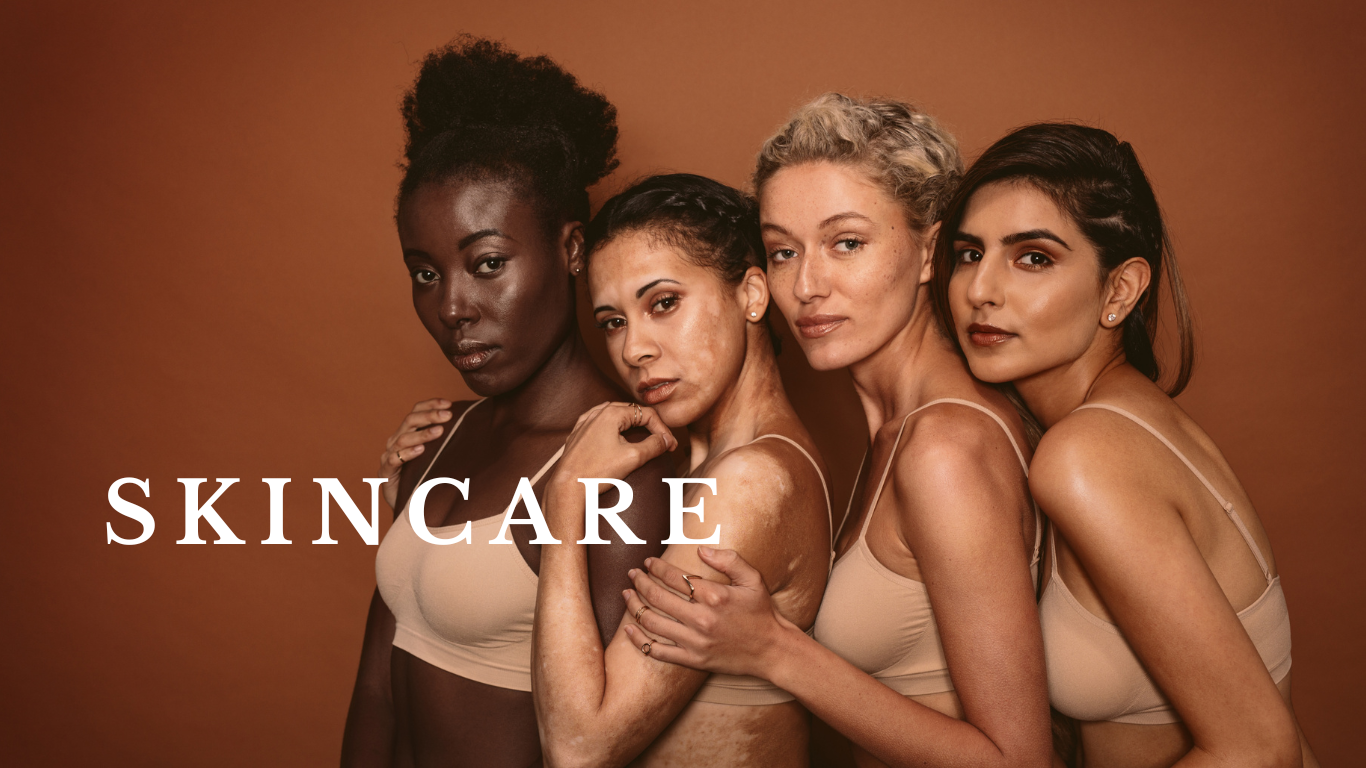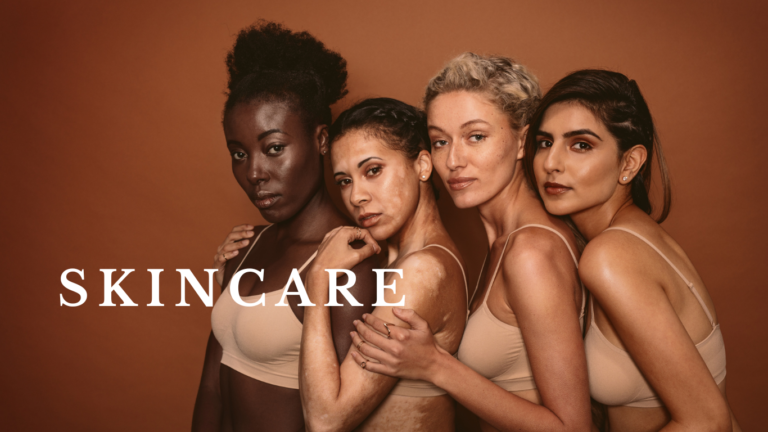Learn how sleep quality affects your skin, especially for darker skin tones. Discover the connection between poor sleep and common skin issues, along with practical tips for healthier skin.
Sleep is not just essential for overall health; it plays a crucial role in maintaining skin health. When sleep quality suffers, the effects often show up on the skin. Poor sleep can contribute to various skin problems, particularly for individuals with darker skin tones, who may experience unique challenges. This article explores how inadequate sleep can damage your skin and offers advice on improving sleep habits to support healthier skin.
How Sleep Affects Skin Health
During sleep, the body undergoes various restorative processes that are essential for skin repair and maintenance. Without sufficient rest, these processes are disrupted, leading to skin issues. Here’s how sleep affects your skin:
– Cell Repair and Regeneration:
Sleep is the time when the body repairs damage to cells, including skin cells. Poor sleep disrupts this process, which can slow down skin healing and renewal.
– Hormonal Balance:
Sleep helps regulate hormones that influence skin health, such as cortisol. Lack of sleep can increase cortisol levels, leading to inflammation and excess oil production.
– Circulation and Oxygen Delivery:
While you sleep, blood flow to the skin increases, delivering oxygen and nutrients necessary for skin health. Poor sleep can limit this process, resulting in a dull complexion.
Common Skin Problems Caused by Poor Sleep
Various skin issues can arise or worsen due to poor sleep quality. Here are some common problems, particularly affecting individuals with darker skin tones:
1. Dark Circles and Puffy Eyes
– Cause: Sleep deprivation can lead to fluid retention around the eyes and a reduction in circulation, making dark circles and puffiness more noticeable.
– Impact on Darker Skin Tones: Dark circles may appear more pronounced due to higher levels of melanin, making discoloration around the eyes more visible.
2. Acne Breakouts
– Cause: Elevated cortisol levels from poor sleep can increase oil production, clogging pores and leading to breakouts.
– Impact on Darker Skin Tones: Acne can leave dark marks or scars (post-inflammatory hyperpigmentation), which tend to persist longer on melanin-rich skin.
3. Dull and Uneven Skin Tone
– Cause: Poor sleep disrupts the skin’s natural repair process, leading to a lack of radiance and an uneven skin tone.
– Impact on Darker Skin Tones: Skin may appear ashy or gray due to reduced circulation, emphasizing unevenness.
4. Fine Lines and Wrinkles
– Cause: Inadequate sleep can impair the production of collagen, a protein that keeps the skin firm and elastic.
– Impact on Darker Skin Tones: Although melanin-rich skin is often less prone to wrinkles, poor sleep can still contribute to premature aging signs like fine lines.
Why Darker Skin Tones Require Special Consideration
Melanin-rich skin may react differently to the effects of poor sleep:
– Increased Risk of Hyperpigmentation:
Discoloration from dark circles, acne, or other skin trauma may be more apparent and longer-lasting.
– Variations in Inflammation Response:
Inflammation can lead to a more visible appearance of skin conditions like eczema or psoriasis.
– Unique Cultural and Lifestyle Factors:
Societal and cultural stressors, including experiences of discrimination or sleep disparities in communities of color, may exacerbate the effects of poor sleep on skin.
The Psychological Impact of Sleep Deprivation on Skin Health
The relationship between sleep and skin health goes beyond physical symptoms; it also affects emotional well-being:
– Self-Esteem Issues:
Skin conditions caused by poor sleep can contribute to low self-confidence, especially when it comes to visible issues like dark circles or acne.
– Stress and Skin Problems Cycle:
When sleep deprivation leads to skin issues, it can cause additional stress, worsening both sleep quality and skin conditions.
– Impact of Cultural Beauty Standards:
Individuals with darker skin may face added pressure to meet specific beauty standards, making skin issues more psychologically challenging.
Breaking the Cycle: How to Improve Sleep and Skin Health
Improving sleep quality can significantly benefit skin health. Here are some tips to help you get better rest:
1. Create a Relaxing Bedtime Routine
– Wind Down Before Bed: Try calming activities such as reading, meditation, or a warm bath to help you relax.
– Limit Screen Time: Avoid exposure to blue light from screens at least an hour before bed, as it can interfere with the production of the sleep hormone melatonin.
2. Maintain a Consistent Sleep Schedule
– Set Regular Bedtime and Wake-Up Times: Sticking to a routine helps regulate your body’s internal clock, improving sleep quality.
– Aim for 7-9 Hours of Sleep: Most adults need between seven and nine hours of sleep per night to support optimal health.
3. Practice Good Sleep Hygiene
– Create a Comfortable Sleep Environment: Keep your bedroom cool, dark, and quiet to improve sleep quality.
– Avoid Caffeine and Heavy Meals Before Bed: These can disrupt sleep, making it harder for your skin to undergo its repair processes.
4. Incorporate Skin-Friendly Habits
– Use Overnight Skincare Treatments: Products with ingredients like retinoids, hyaluronic acid, or peptides can work with your skin’s natural repair process during sleep.
– Stay Hydrated: Drink plenty of water throughout the day, but avoid excessive fluid intake right before bed to prevent disruptions.
Navigating Sleep and Skin Health for Diverse Communities
Cultural and societal factors can influence sleep and skin health for people of color. Consider these aspects:
– Address Sleep Disparities::
If environmental or lifestyle factors (like noise pollution or shift work) affect sleep, seek ways to mitigate these challenges through relaxation techniques or sleep aids.
– Honor Cultural Practices:
Incorporate sleep-supportive rituals or herbal remedies that are culturally significant, as long as they are safe and effective.
– Support Mental Health:
Poor sleep can worsen stress and anxiety, so addressing mental health needs can help improve both sleep quality and skin health.
FAQs
1. How does lack of sleep lead to skin problems?
Sleep deprivation increases stress hormone levels and decreases blood flow to the skin, leading to inflammation, dullness, and other skin issues.
2. Are people with darker skin more affected by sleep deprivation?
The physical effects of sleep deprivation, such as hyperpigmentation and dryness, can be more visible on darker skin, making them more noticeable.
3. How can I reduce dark circles caused by poor sleep?
Using a cold compress, staying hydrated, applying eye creams with caffeine or vitamin K, and improving sleep quality can help reduce dark circles.
4. Can sleeping more clear up my skin?
Better sleep supports skin repair and regeneration, which can help reduce acne, dullness, and other issues over time, but a comprehensive approach is best.
5. Should I use skincare products that promise to “fix” sleep-deprived skin?
While some products can help minimize the appearance of tired skin, the most effective solution is improving sleep quality.
6. Can cultural factors affect how sleep impacts my skin?
Yes, cultural and lifestyle factors, including stress, diet, and environmental influences, can play a role in how sleep affects your skin.
Conclusion
Poor sleep quality can significantly impact skin health, especially for individuals with darker skin tones. By understanding the connection between sleep and skin, adopting better sleep habits, and using a holistic approach to skincare, you can improve both your sleep and skin health. Remember, it’s important to address not just physical factors but also cultural and lifestyle influences that may affect your well-being.
—
Disclaimer: This article is for informational purposes only and does not replace professional medical advice. Consult a healthcare provider for personalized recommendations.



